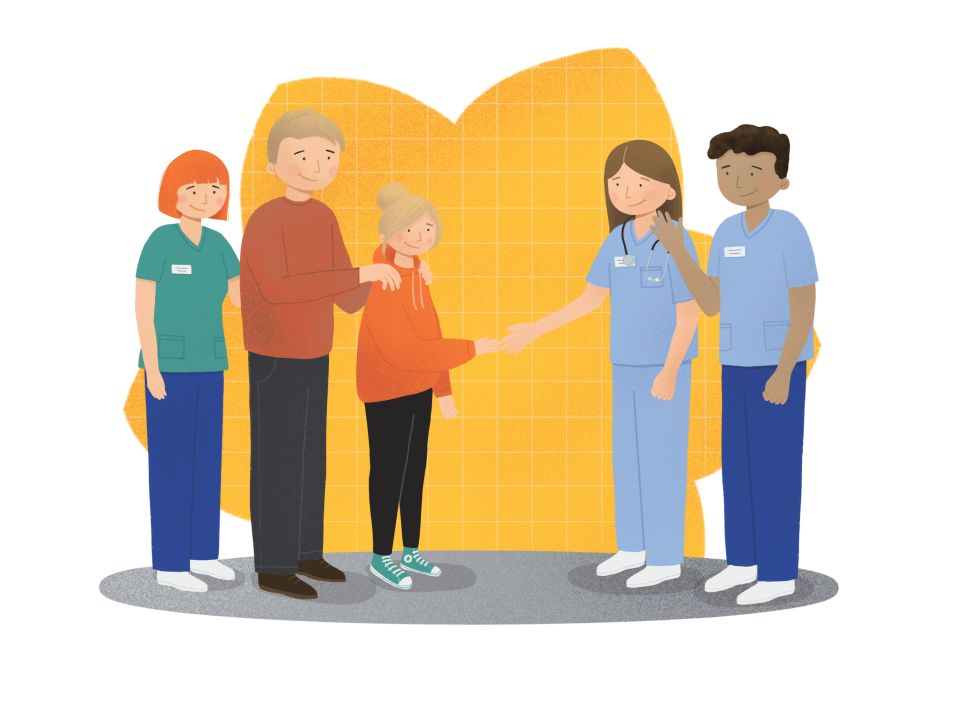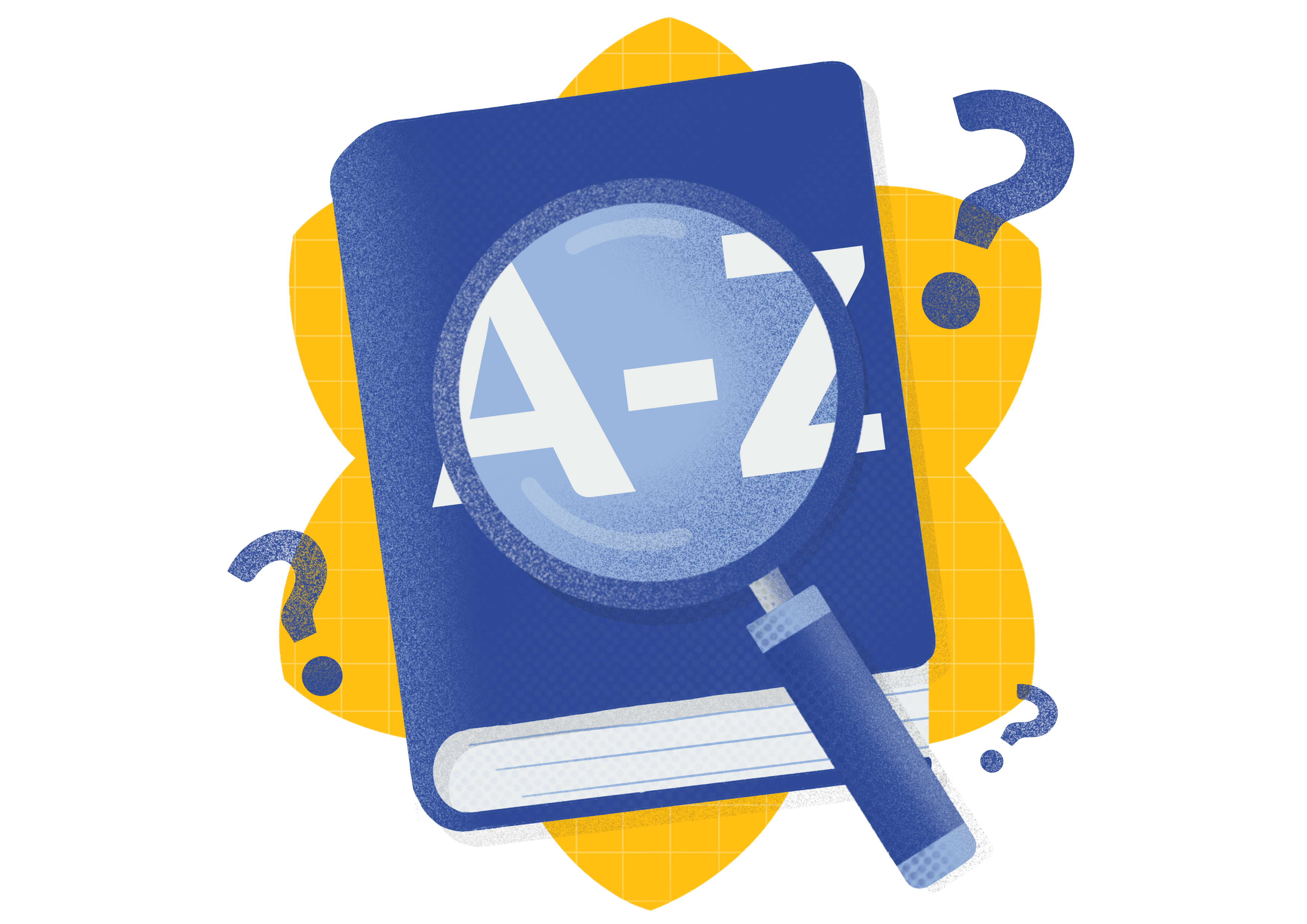Getting to know the hospital team

There are many people who can help you and your child during treatment.
Advanced nurse practitioners (ANP)
ANPs are nurses who have extensive knowledge and training and are skilled to a high level in the care of children with cancer.
Clinical nurse specialists (CNSp)
CNSps are specially trained nurses who provide education and information to help you care for your child at home. They can also liaise with your primary healthcare team and shared care centre.
Complementary therapist
The complementary therapist can provide therapies such as reflexology, relaxation, aromatherapy, Indian head massage, deep breathing and mindfulness for your child. They can help ease some of the stress and symptoms caused by a cancer diagnosis and its treatment.
Dietitians
Dietitians can help your child grow and develop as normal throughout their treatment. At times, some children may be unable to eat enough to either gain or maintain their weight. If that becomes an issue for your child, the dietitian can support you on how best to manage it. They can also help you to cope with eating-related side-effects and advise on a balanced diet for your child.
Healthcare assistants
Healthcare assistants are trained to give children essential care and support with day-to-day living. They can also help nurses, doctors and other healthcare professionals.
Medical social workers
Medical social workers can help you with any practical, emotional and financial problems your child or your family may have. They can meet you early on to discuss the diagnosis and how you are going to cope. They will give you information about talking to friends, family and other important people such as staff at school. They can also advise you on how to talk to and involve your other children. Apart from providing counselling, they can also help with practical problems and give advice on entitlements and support services available to you.
Music therapist
The music therapist uses music to help children express their emotions, feel less isolated, process their feelings and to relax and feel more comfortable, as well as having fun and developing their skills.
Non-consultant hospital doctors
These are doctors on the team who work under the consultant as trainee specialists. For example, specialist registrars, registrars and senior house officers.
Occupational therapists (OTs)
OTs provide rehabilitation and ways to help your child with their everyday activities. Their services are aimed at improving the loss of any functions and managing fatigue and energy loss. Therapies include helping your child if at risk of developmental delay because of long and frequent hospital stays.
Paediatric anaesthetists
These are doctors who can put your child to sleep and monitor them throughout surgery.
Paediatric oncologists and haematologist
These are doctors who treat children with cancer. They are specialists in planning and giving cancer treatments, such as chemotherapy, targeted therapy and immunotherapy. Haematologists specialise in blood disorders, including leukaemia and lymphoma. They are also involved in the haematology laboratory, where blood and bone marrow samples are analysed.
Palliative care team
This is a group of specially trained doctors, nurses and other professionals who help support you, your child and your family if your child is diagnosed with a life-limiting cancer.
They focus on the quality of life for your child by providing support, such as pain and symptom management, and also emotional support. This emotional support is also available for you and your extended family.
Pastoral care team
The chaplains (RC) or ministers of other faiths take particular care of the spiritual needs of your child and family at the hospital. Chaplains are available 24 hours a day to listen, talk and/or pray with you. Ministers of other faiths can be contacted through the chaplains and are welcome at all times.
Pathologists
Pathologists are doctors who analyse tissue samples (for example, biopsies) under the microscope to diagnose illness or see how an illness is responding to treatment.
Pharmacists
Pharmacists are responsible for supplying medicines for use in the hospital and advising doctors, nurses and parents about all aspects of their use. They are based in the hospital pharmacy and may also visit the ward and Haematology/Oncology Day Unit.
Physiotherapists
Physiotherapists help to restore wellbeing to children and adolescents after injury, pain or disability. They can assess your child and develop individual treatments to promote, maintain and restore normal development, movement, balance and posture. This is done by taking account of your child’s health status and their level of development.
Play specialist
Play specialists use play as a preparation and distraction while making your child’s experience of hospital as normal as possible. Play is an essential part of every child’s life and supports social, emotional, intellectual and physical development.
Psychologists
Child psychologists can support your child, adolescent or family to adjust and cope with a cancer diagnosis and the impact of treatment. They can help your family address issues that may arise in relation to your child’s behaviour, how they are coping emotionally and schooling concerns. These issues can happen at any stage of treatment, at the end of treatment or after it has finished.
Radiation oncologists
Radiation oncologists specialise in using radiotherapy to treat cancer.
Radiation therapists
Radiation therapists deliver radiotherapy treatment.
Radiographers
Radiographers take X-rays.
Radiologists
Radiologists are doctors who interpret X-rays and scans to help diagnose the cancer and plan your child’s treatment.
Schoolteachers
The Department of Education and Skills funds a primary and secondary education service at CHI, Crumlin for children who are inpatients or repeat day patients. Your child may attend school in the ward classroom or teachers will go to your child’s bedside. Teachers – with help from you, your child and the school – will design an education plan for your child to follow while in hospital.
Surgeons
Surgeons carry out operations. They may take a sample of the cells to be examined (biopsy) and/or remove a tumour. They also may put in central lines and implantable ports.
Transplant nurse specialists
Transplant nurse specialists are specially trained nurses who can inform you and your family about bone marrow or stem cell treatments. They are involved in organising all tests needed before and after the transplant and can support you and your family throughout the process.
Volunteers
Volunteers from Children in Hospital Ireland and Barretstown may spend time playing with your child either in the playroom or individually. These volunteers are all carefully trained and vetted. The Irish Cancer Society parent peer-to-peer support is also available if you would like to speak to a trained volunteer who understands what you are going through and what it is like to have a child with cancer.
For more information
Phone
1800 200 700



